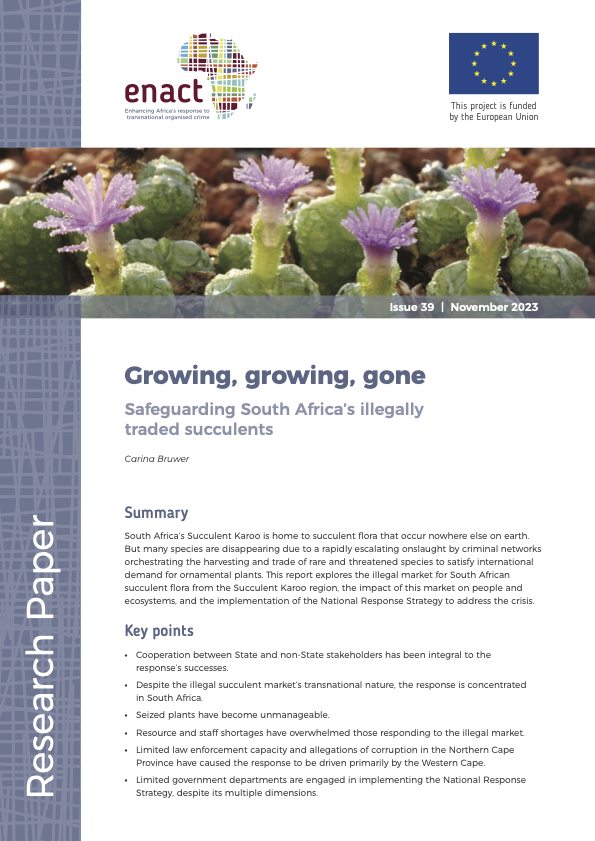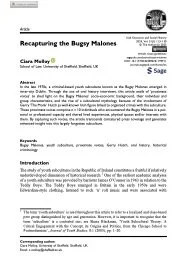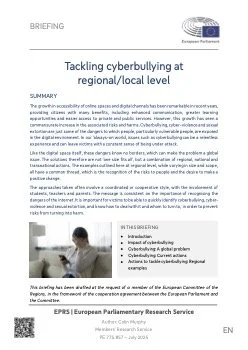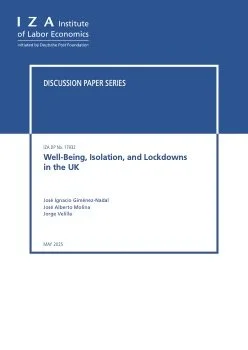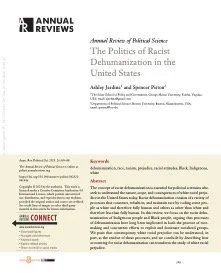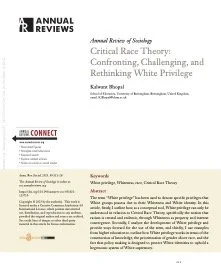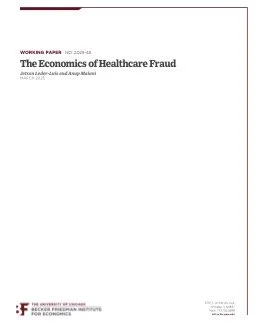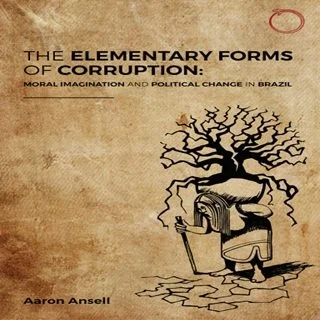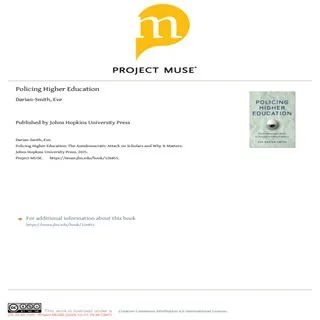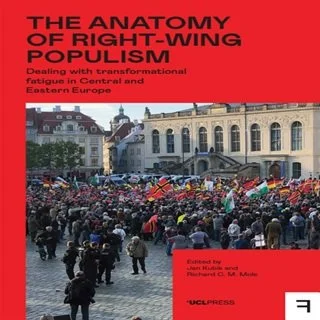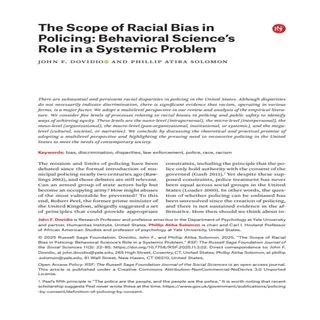By Ciara Molloy
In the late 1970s, a criminal-based youth subculture known as the Bugsy Malones emerged in inner-city Dublin. Through the use of oral history interviews, this article avails of ‘proximate voices’ to shed light on the Bugsy Malones’ socio-economic background, their individual and group characteristics, and the rise of a subcultural mythology because of the involvement of Gerry ‘The Monk’ Hutch (a well-known Irish figure linked to organised crime) with the subculture. These proximate voices comprise n = 10 individuals who encountered the Bugsy Malones in a personal or professional capacity and shared lived experiences, physical spaces and/or interests with them. By capturing such voices, the article transcends caricatured press coverage and generates enhanced insight into this largely forgotten subculture.
Irish Economic and Social History, 51(1), 113-130.
By Sylvia Barack Fishman
Waves of Jews emigrating to the United States from colonial to contemporary times were often fleeing active persecution, regarded as pariahs by surrounding Christians and Muslim majorities in their lands of origin. But in America, despite a range of difficult challenges, the status and image of Jews were both gradually transformed. Several excellent studies document how perceptions of Jews as a clearly defined “race” gradually eroded as the American twentieth century wore on.1 Still, among children of the immigrant generation, and among Holocaust survivors and their descendants especially, many American Jews continued to believe that Jews were potentially vulnerable, and should remain vigilant to potential antisemitic flare-ups. Even Jews born in the United States often felt that White Anglo-Saxon Protestant America, while “exceptional” and much more benign than most countries of origin in its treatment of the Jews, still exhibited occasional signs of antisemitism. Even after American Jews had become “white folks,” many insisted that their Jewish “whiteness” was still different than that of the WASPs, whom novelist Philip Roth desig- nated “the real owners of this place,”2 and Jewish often seemed to be “whiteness of a different color.”3 This Jewish sense of vulnerability was part of the motivation for American Jewish political and social activity on behalf of other oppressed groups and new immigrants: As sociologist Marshall Sklare demonstrated in his groundbreaking studies, many suburbanizing liberal American Jews in the 1950s and 1960s asserted that one of the most “essential” activities in order to be a “good Jew” was to “work for civil rights” and to help “attain equality for Negroes.”4 Many Jews took as their foundational religious motto the biblical principle “Be kind to the stranger because you were strangers in the land of Egypt” (Deuteronomy 10:19), meaning that Jews are a people whose lives intersect with other oppressed peoples, and Jews are responsible for helping other oppressed peoples. No longer stereotyped as foreign-looking, accented and struggling newcomers, successive generations of American Jews were increasingly (and sometimes negatively) portrayed as typifying the bourgeoisie or sometimes the nouveau riche. Satirical portrayals created by Jewish authors and filmmakers contributed: Herman Wouk, Philip Roth, and countless film and television screen-writers shone unflattering spotlights on aggressively upwardly mobile Jewish men and on Jewish women as the incarnation of spiritually bankrupt Judaism-as-consumerism. Ironically, among politically right-wing Americans, Jews were simultaneously stereotyped as communist “Reds” during and through the years leading up to the McCarthy/House Un-American Activities Committee hearings. Both sides of this negative stereotyping—the Jew as capitalist consumer and the Jew as “Red Menace”—reveal the durability of Jews as a distinctive, “othered” minority American group. (continued_
OCCASIONAL PAPER SERIES no. 1/2021
Oxford ◆ Cambridge ◆ New York.◆ Jerusalem ◆ Toronto.◆ Rome;
The Institute for the Study of Global Antisemitism and Policy
ISCAP 35p.
By Colin Murphy
SUMMARY The growth in accessibility of online spaces and digital channels has been remarkable in recent years, providing citizens with many benefits, including enhanced communication, greater learning opportunities and easier access to private and public services. However, this growth has seen a commensurate increase in the associated risks and harms. Cyberbullying, cyber-violence and sexual extortion are just some of the dangers to which people, particularly vulnerable people, are exposed in the digital environment. In our 'always-on'world, issues such as cyberbullying can be a relentless experience and can leave victims with a constant sense of being under attack. Like the digital space itself, these dangers know no borders, which can make the problem a global issue. The solutions therefore are not 'one size fits all', but a combination of regional, national and transnational actions. The examples outlined here at regional level, while varying in size and scope, all have a common thread, which is the recognition of the risks to people and the desire to make a positive change. The approaches taken often involve a coordinated or cooperative style, with the involvement of students, teachers and parents. The message is consistent on the importance of recognising the dangers of the internet. It is important for victims to be able to quickly identify cyberbullying, cyberviolence and sexual extortion,and know how to deal with it and whom to turn to, in order to prevent risks from turning into harm.
Brussels: EPRS | European Parliamentary Research Service, 2025. 9p.
By The Institute for the Study of Global Antisemitism and Policy (ISGAP)
This report examines the Choices Program, a national education initiative for K-12 social studies curriculum housed at Brown University that combines licensed curriculum units, free online content, and professional education workshops to provide a range of resources for secondary school classrooms.17 The program, used by 8,000 schools in all fifty states, reaches over one million students. Our investigation reveals significant concerns regarding the program’s ambiguous structure, lack of transparency, ideological content shifts, and external influences. Organizational structure and transparency issues The report starts by documenting the structure of the Choices Program. Our investigation has uncovered troubling discrepancies in how the Choices Program presents itself: • While operating under Brown University’s umbrella and reputation, the program describes itself both as “a self-funded organization affiliated with Brown University” and as a separate “non-profit organization” based at Brown University. • Brown University enters into contracts “on behalf of” the Choices Program, suggesting a distinct legal structure with actors that are unknown to the schools that purchase the curriculum with no clear understanding of the true organizational structure. • The program’s financial structure and revenue streams remain opaque, with significant discrepancies between reported budgets and apparent revenue. Systematic content changes and ideological shifts that are reinforced by schools’ lack of oversight or content control The report next examines the Choices Program’s shift in narrative with respect to Israel and the fact that its structure impedes meaningful oversight and review of the curriculum. In particular, we demonstrate that the Choices Program has over many years become increasingly anti-Israel and anti-democratic in its approach, reflecting a particular pedagogical change in strategy and application that either went unnoticed by the schools purchasing the curriculum or was not disclosed by Brown University. Analysis of program materials, particularly those concerning the Middle East, reveals concerning patterns: • progressive delegitimization of Israel through content changes across editions; • elimination of key historical context and balanced perspectives; • downplaying of significant diplomatic achievements like the Abraham Accords; • introduction of increasingly partisan theoretical frameworks; • systematic changes in terminology and map presentations. This content and ideological shift has been bolstered by the proprietary system put in place by the Choices Program, which raises additional concerns: • schools lose the ability to track or review content changes; • schools receive no notification clarifying curriculum modifications; • restricted access prevents oversight by school boards and parents; • the limited transparency of the program’s privacy policies and third-party data sharing arrangements raises concerns about conflicts of interest and the potential exposure of students or teachers to external sources not approved by schools. External influence and misrepresentation Our investigation identified significant discrepancies between Brown University’s public statements and documented evidence regarding external influence over the Choices Program, including: • the understated relationship with QFI; • the misrepresentation of the nature and extent of QFI’s involvement in workshop content, teacher engagement, and curriculum distribution; • the lack of transparency concerning donor influence on content development Key implications This report raises serious concerns about: 1. potential violations of educational transparency requirements; 2. oversight failures by educational institutions adopting the curriculum; 3. compromised academic integrity through undisclosed external influences; 4. impact on student learning and perspective formation; 5. broader implications for K-12 educational content oversight. These findings suggest an urgent need for increased transparency, improved oversight mechanisms, and clearer guidelines for foreign influence in K-12 educational materials. The report concludes with specific policy recommendations to address these systemic issues.
Miami Beach; New York: The Institute for the Study of Global Antisemitism and Policy (ISGAP) 2025. 41p.
By José Ignacio, Giménez-Nadal, José Alberto Molina, Jorge Velilla
Social connection is a key determinant of emotional well-being, yet the role of solitude in shaping both momentary affect and overall life satisfaction remains understudied. This paper investigates how being alone while engaging in daily activities relates to subjective well-being, using rich time-use diary data from the UK covering four distinct periods: pre-pandemic (2015–2016), the Covid-19 lockdowns (2020–2021), the relaxation phase (2021), and the post-pandemic period (2023). We find that being alone is negatively associated with momentary enjoyment, particularly in the post- pandemic period, but not during lockdowns or the initial relaxation phase, suggesting that the emotional cost of solitude depends on its perceived voluntariness and social norms. The enjoyment penalty is strongest for leisure and unpaid work episodes, and most pronounced among remote workers. We also document a negative association between full-day solitude and overall life satisfaction, but only during the relaxation phase, suggesting that solitude can impose both short-term and longer-term costs of well-being, depending on the social context and type of activity. Our results contribute to the literature on experienced utility, labor supply, and remote work, highlighting the need to account for the emotional toll of isolation in welfare analysis and policy design.
IZA DP No. 17932
Bonn: IZA – Institute of Labor Economics, 2025. 37p.
By Robbie Shilliam and Lester Spence
Over the past decade, autocratization has increased worldwide, and the United States itself has seen its own democracy erode.While political scientists have begun to study both phenomena in earnest, with exceptions, they have been unable to fully wrestle with either. We suggest that this incomplete understanding is the result of the discipline’s problematic racial history. At the time of its founding in the late nineteenth century, political science provided a eugenicist justification for the very hierarchies and segregations that are now under scrutiny. Race was understood to be the quintessential subject of social scientific inquiry. After World War II, political scientists rejected eugenics and instead focused on defending democracy against totalitarianism. In doing so, they relegated racism to an ideological/irrational phenomenon and thus as extraneous to the core concern of the discipline. In this Annual Review of Political Science article, we refract the discipline’s contemporary and historical concerns with democracy through the lens of racial politics to better equip scholars with tools to examine and critically diagnose contemporary politics.
Annu. Rev. Political Sci. 2025. 28:195–211
By Aisha M. Beliso-De Jesús, Jemima Pierre, and Junaid Rana
This review presents a historical and contemporary view of white supremacy as an entrenched global system based on presumed biological and cultural difference, related practices of racism, the valorization of whiteness, and the denigration of non whiteness. We center the role of the discipline of anthropology, and contend that the discipline is shaped by, and shapes, structures of white supremacy. In this article, we detail anthropology’s role in the development of racial science and the subsequent placement of whiteness at the top of the world’s global political and cultural systems of power. We examine the early critiques of anthropology’s racializing practices by Black and Indigenous anthropologists, which set the stage for an anti-imperial analysis that addressed how white power was entrenched within the discipline and broader society. Last, we discuss emerging scholarship on the anthropology of white supremacy and the methodological and theoretical shifts that push the discipline and refine the concept.
Annu. Rev. Anthropol. 2023. 52:417–35
By Ashley Jardina1 and Spencer Piston
Abstract The concept of racist dehumanization is essential for political scientists who seek to understand the nature, scope, and consequences of white racial prejudice in the United States today. Racist dehumanization consists of a variety of processes that construct, refashion, and maintain race by coding some people as white and therefore fully human and others as other than white and therefore less than fully human. In this review, we focus on the racist dehumanization of Indigenous people and Black people, arguing that processes of dehumanization have long been implicated in both the practice of racemaking and concurrent efforts to exploit and dominate racialized groups. We posit that contemporary white racial prejudice can be understood, in part, as the residue of these processes, and we conclude by describing how accounting for racist dehumanization can transform the study of white racial prejudice.
Annu. Rev. Political Sci. 2023. 26:369–88
By Kalwant Bhopa
The term “White privilege” has been used to denote specific privileges that White groups possess due to their Whiteness and White identity. In this article, firstly, I outline how, as a conceptual tool,White privilege can only be understood in relation to Critical Race Theory, specifically the notion that racism is central and endemic, through Whiteness as property and interest convergence. Secondly, I analyze the development of White privilege and provide ways forward for the use of the term, and thirdly, I use examples from higher education to outline how White privilege works in terms of the construction of knowledge, the prioritization of gender above race, and the fact that policy making is designed to protect White identities to uphold a hegemonic system of White supremacy.
Annu. Rev. Sociol. 2023. 49:111–28
By Jetson Leder-Luis and Anup Malani
Healthcare fraud imposes a sizable cost on U.S. public healthcare budgets and distorts health care provision. We examine the economics of health care fraud and enforcement using theory and data and connect to a growing literature on the topic. We first offer a new economic definition of health care fraud that captures and connects the wide range of activities prosecuted as fraud. We define fraud as any divergence between the care an insurer says a patient qualifies for, the care a provider provides, and the care a provider bills for. Our definition clarifies the economic consequences of different categories of fraud and provides a framework for understanding the slate of existing studies. Next, we examine the incentives for committing and for prosecuting fraud. We show how fraud is driven by a combination of inadequate (expected) penalties for fraud and imperfect reimbursement rates. Public anti-fraud litigation is driven by the relative monetary, political or career returns to prosecuting fraud and by prosecutorial budgets. Finally, we examine the prevalence of health care fraud prosecutions across types of fraud and types of care, and across the US, by machine learning on text data from Department of Justice press releases.
WORKING PAPER · NO. 2025-45
Chicago: University of Chicago, Becker Friedman Institute for Economics 2025. 45p
By Yuxi Shang , Zhongxian Wu , Xiaoyu Du3, Yanbin Jiang , Beibei Ma , Meihong Chi
Criminals targeting and exploiting older adults in online environments are of great concern. This study systematically retrieved and analyzed articles on the psychological characteristics of older adult victims of online fraud. First, we found that there was no evidence that older adults were more prevalent than other individuals of other ages among online fraud victims, and current researchers have focused more on why older adults are easy targets for fraud (susceptibility to being cheated). Second, research on psychological factors of older adults' susceptibility to online fraud has mainly focused on cognitive function, trust traits, and other personality traits, such as social loneliness, the Big Five personality traits, and self-control. Among them, most researchers claim that the cyber-cheating of older adults may be due to a decline in their cognitive function. However, there has not been a consensus on how cognitive function and physical and mental conditions affect older people who are cheated. Third, techniques (i.e., methods and techniques used by fraudsters) and experience (i.e., familiarity with internet technology or fraud) may be related to the susceptibility of older adults to fraud, and these studies have also not yet generated a consensus supported by reliable data. Based on the above research uncertainties, we propose that fraud prevention and control strategies for older adults should be applied with caution.
Front Psychol. 2022 Sep 5;13:912242. doi: 10.3389/fpsyg.2022.912242. PMID: 36132192; PMCID: PMC9484557
Edited by Barbara Thiele
Rape Culture and the Bible: Scholars Reflect offers readers the opportunity to hear from prominent and influential biblical scholars and scholar activists as they reflect on their work on sexual violence vis-a-vis the Bible. This book covers major points of inquiry in the field, focusing primarily on the Hebrew Bible and the New Testament. It explores debates on appropriate terminology; intersectionality of sexual violence, gender, and race; how survivor perspectives inform the reading of violent texts; male-on-male sexualized violence in biblical literature; and the connections of Judeophobia with sexual violence in early Christian literature. The introductory chapter establishes methodology, purpose, and aims of this volume. The final chapter reflects on the ethical concerns governing the field, challenges scholars have faced in their discipline, and the tasks ahead. Along the way, Rape Culture and the Bible demonstrates how rape and rape culture in the Bible impact real lives across time and the globe.
Oxford: Routledge, 2025.
By Aaron Ansell
Seeks to better understand the nature of corruption through a case study of a rural Brazilian community’s response to the country’s political fraud. The Elementary Forms of Corruption is an ethnographic history of rural Brazilians’ shifting moral imagination in the context of their country’s recent corruption scandals and political crises. The book explores how Brazil’s cosmopolitan models of corruption, both left-wing and right-wing varieties, found their way to a small sertanejo (hinterland) municipality in the northeast, where people understood corruption very differently. Reckoning with both the leftist Workers’ Party, which sought to liberate sertanejos from patron-client relations, and the New Right populists who sought to stamp out the “communists” threatening the patriarchal family, the people of the sertanejo made recourse to older ideas about corruption—such as the betrayal of kinship obligations and communal trust—to decipher and shape national politics. Challenging the discipline’s current aversion to generalizable, analytic categories that are useful for comparison across cultures or historical periods, The Elementary Forms of Corruption posits a general framework for understanding corruption at its most elementary level: the degradation of a moral gradient through the transgressive rechanneling of those currencies (e.g., gifts, favors) that sustain communal bonds when properly directed.
Chicago: HAU Books, 2025.
By Eve Darian-Smith
On the essential role of higher education and academic freedom in thriving democracies. Higher education is facing an existential crisis. Students and staff are surveilled with cameras and facial recognition software. Police zip-tie and arrest students during protests. As universities across the United States become epicenters of ideological warfare, Policing Higher Education contextualizes these skirmishes within a broader global framework. From the contentious debates surrounding free speech and curriculum control to the denial of tenure for outspoken faculty, Eve Darian-Smith examines the myriad ways higher education has become a battleground. Darian-Smith highlights the intersecting global trends of rising authoritarianism and declining academic freedom, revealing how the United States is part of a larger pattern seen in democracies worldwide, including Brazil, Hungary, Germany, India, and the Philippines. This book challenges readers to view educational conflicts not merely as culture wars but as intense and connected struggles over economic, political, and social power. Drawing from extensive scholarship, Darian-Smith humanizes the impacts of these attacks on scholars and students, offering poignant stories of persecution and resilience. With a critical eye on the historical and structural drivers of antidemocracy, this book pushes for new, meaningful conversations about academic freedom that transcend national borders. It emphasizes the vital role of universities in fostering social responsibility and combating the global drift toward authoritarianism.
Baltimore: Johns Hopkins University Press. 2025.
Edited by Jan Kubik and Richard C. M. Mole
Over the past two decades, populist politicians and parties have enjoyed remarkable success across the globe. The rise of right-wing populism is perhaps most noticeable in post-communist Europe, especially in Hungary and Poland, where politicians subscribing to this ideology have come to power and weakened media pluralism, the protection of minorities, the sovereignty of civil society and the independence of the judiciary. To develop a multidisciplinary understanding of the rise and functioning of right-wing populism in Central and Eastern Europe, The Anatomy of Right-wing Populism examines the two original concepts of neo-traditionalism (to capture the construction of the pure people in opposition to the corrupt elites and the threatening others) and neo-feudalism (to capture an economic strategy whereby a relatively small elite controls the apex of political power and a sizable portion of the country’s economy). This book argues that the causes and consequences of populism cannot be fully understood without a multidisciplinary analysis, drawing on the theories and approaches of politics, history, economics, sociology and anthropology. Grounded in empirical research, this volume provides theoretical insights into how populism became such a powerful political force and formulates policy recommendations on how to resist illiberalism, thereby appealing not only to academics but also to activists and policy makers.
London: UCL Press, 2025
By John F. Dovidio and Phillip Atiba Solomon
There are substantial and persistent racial disparities in policing in the United States. Although disparities do not necessarily indicate discrimination, there is significant evidence that racism, operating in various forms, is a major factor. We adopt a multilevel perspective in our review and analysis of the empirical literature. We consider five levels of processes relating to racial biases in policing and public safety to identify ways of achieving equity. These levels are the nano-level (intrapersonal), the micro-level (interpersonal), the meso-level (organizational), the macro-level (pan-organizational, institutional, or systemic), and the megalevel (cultural, societal, or narrative). We conclude by discussing the theoretical and practical promise of adopting a multilevel perspective and highlighting the pressing need to reconceive policing in the United States to meet the needs of contemporary society.
RSF: The Russell Sage Foundation Journal of the Social Sciences 11(3): 22–85.
By Kurt W. Fowler, Heidi Grundetjern
The criminalization of sex work continues to stigma-tize people who sell sex. Nevertheless, people who sellsex are not a monolith. In this study, we draw from semi structured interviews with 50 active sex workers,most of whom were white and from middle-class back-grounds, to show how they experienced empowerment in their work. We use Zimmerman’s concept of psy-chological empowerment to unpack how empowerment was both a process and an outcome for the workers.Empowered processes included business acumen, soft skills, and risk management, allowing for empowered outcomes: money and autonomy, self-esteem and pride,and deeper meanings related to helping others. Access To digital platforms played a key role in facilitating this empowerment. The workers in our study were wellaware of the prevailing stereotypes and stigma applied to their work, but they mitigated the risks associated with stigma through the use of digital technology to access helpful virtual communities. Although sex workers empowerment was largely enabled by their socioeco-nomic privilege, stigma played a key role in their sense of empowerment.
Criminology. 2025;63:614–638.
By James Windle & Clara Schenk
This paper challenges the common portrayal of White Power music as evolving from, or being an element of, Oi! punk. The paper traces the histories of White Power music and Oi!, and analyses a sample of 268 Oi! songs for racist or fascist lyrics. It shows that, while some Oi! artists and audience members were involved in far-right activism, the subculture was not itself fascist or overtly racist. Many of those involved in Oi! took action against racism and far-right movements, and almost no songs included racist lyrics. The paper proposes two arguments. First, drawing from Worley, media and scholarly portrayals of Oi! as racist or fascist may represent the demonization of the working-class. Second, that White Power co-opted elements of Oi! does not mean that White Power music emerged from Oi!. Rather it likely emerged from first-wave punk at roughly the same time as Oi!. The central argument being that the White Power music scene, and the far-right more generally, is parasitical. It feeds upon the resources of larger scenes and subcultures, often harming them in the process
DEVIANT BEHAVIOR, 2025, VOL. 46, NO. 10, 1329–1345
By Manacy Pai, T. Muhammad, Adedayo Adeagbo, and Waad Ali
We examined the associations between perceived neighborhood safety, crime exposure, and the prevalence of chronic conditions and multimorbidity among older adults in India. Moreover, we examined whether these associations varied by functional disabilities measured by difficulties in activities of daily living (ADLs) and instrumental activities of daily living (IADLs). Data came from the World Health Organization’s Study on Global AGEing and Adult Health (SAGE), India Wave 2, conducted in 2015. Neighborhood safety was measured by perceptions of safety at home and while walking after dark, whereas crime exposure was assessed through reports of household victimization by violent crime in the past year. Chronic conditions were self-reported physician diagnoses of hypertension, diabetes, stroke, arthritis, angina, asthma, and lung disease, with multimorbidity defined as the presence of more than two chronic diseases. Multivariable regression analyses were used to examine the main associations and interaction terms to test the moderating role of ADL/IADL disabilities. The mean score of neighborhood safety (on a scale of 0–10) was 7.72 (SD: 2.05). Approximately 6% of the participants reported that they or someone in their household had been victims of violent crime in the previous year. Older adults with perceived neighborhood safety reported a lower number of chronic conditions (adjusted beta: -0.03, confidence interval [CI]: -0.04 to 0.01) and lower odds of multimorbidity (adjusted OR: 0.95, CI: 0.91 – 0.99). Those with crime exposure reported a higher number of chronic conditions (adjusted beta: 0.10, CI: 0.02 – 0.19). These associations were significantly more pronounced among those with ADL/IADL disabilities. Perceived neighborhood safety and crime exposure were significantly linked to chronic diseases and multimorbidity among older adults in India, particularly among those with functional disabilities. These findings underscore the need for targeted strategies to improve neighborhood safety and support among older Indians with functional disabilities


